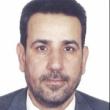safety
Chewable Tablets: Is this Dosage Form Well Evaluated by Palestinian Health Professionals ?
Tue, 2014-07-01 11:09 — Abdel Naser ZaidTo evaluate the scientific knowledge and attitudes of health professionals in Palestine regarding the advantages of chewable tablets in comparison with other related dosage forms. Methods: Data was gathered from a questionnaire that was handed out to community pharmacists & Physicians. Pharmaceutical industry decision makers were also enrolled in this study. Data was analyzed using SPSS statistical software program version 11.0. Results: Both the 149 pharmacists and 111 physicians who participated in this study, had very close opinions with regard to the superiority of chewable tablets over the corresponding liquid dosage forms, especially when issues of palatability, stability, dose precision, ease of administration, portability and safety were mentioned. Pharmacists and physicians were uncertain about the higher effectiveness of chewable tablets in comparison with other related dosage forms, (i.e syrups and suspensions), which contain the same active ingredients. All industrial decision makers thought that the number of chewable tablet formulations present in Palestine is relatively low. One third of them believed that this dosage form is not fully evaluated nor well appreciated by pharmacists and doctors. About half of them thought that the lack of technology or specialized personnel is the reason behind the poor development of this dosage form. Conclusion: The importance of chewable tablets is not completely understood and appreciated by the Palestinian health personnel. Pharmaceutical manufacturers should pay more attention to the development and production of chewable tablets due to the obvious advantages of this dosage form. Clear and complete information about this dosage form must be provided to pharmacists and physicians by medical representatives.
Traffic Circles--A Viable Form of Intersection Control?
Sun, 2014-04-27 12:35 — Khaled Ahmad Al-SahiliEast Lansing, Michigan, is home to Michigan State University and about 40,000 students that bus, walk, and drive cars on campus. Although most intersections are controlled by two-way stop signs or signals, three major intersections are controlled by traffic circles. A study was initiated to address operational problems at one of the six major intersections. The purpose of the study was to determine the feasibility of changing right-of-way control and to evaluate alternatives to the existing traffic circles. Results indicate that accidents (vehicle, bicycle, and pedestrian) at traffic circles were less severe and less frequent. Data also showed that measures of effectiveness, such as fuel consumption, delay times, and emissions, were more efficent at the traffic circles. Overall, the capacity and operation of all the two-way stop intersections could be improved by converting them to traffic circles.
Dental Solid and Hazardous Waste Management and Safety Practices in Developing Countries: Nablus District, Palestine
Thu, 2014-01-09 11:54 — Mohammed Al-Subu'This study investigated the dental waste management practices and safety measures implemented by dentists in the Nablus district, Palestine. A comprehensive survey was conducted for 97 of the 134 dental clinics to assess the current situation. Focus was placed on hazardous waste produced by clinics and the handling, storage, treatment and disposal measures taken. Mercury, found in dental amalgam, is one of the most problematic hazardous waste. The findings revealed that there is no proper separation of dental waste by classification as demanded by the World Health Organization. Furthermore, medical waste is often mixed with general waste during production, collection and disposal. The final disposal of waste ends up in open dumping sites sometimes close to communities where the waste is burned. Correct management and safety procedures that could be effectively implemented in developing countries were examined. It was concluded that cooperation between dental associations, government-related ministries and authorities needs to be established, to enhance dental waste management and provide training and capacity building programs for all professionals in the medical waste management field.
Chewable Tablets: Is This Dosage Form Well Evaluated By Palestinian Health Professionals?
Sun, 2011-03-13 15:31 — Samah W. Al-Jabi
Abstract:To evaluate the scientific knowledge and attitudes of health professionals in Palestine regarding the advantages of chewable tablets in comparison with other related dosage forms.
Methods: Data was gathered from a questionnaire that was handed out to community pharmacists & Physicians. Pharmaceutical industry decision makers were also enrolled in this study. Data was analyzed using SPSS statistical software program version 11.0. Results: Both the 149 pharmacists and 111 physicians who participated in this study, had very close opinions with regard to the superiority of chewable tablets over the corresponding liquid dosage forms, especially when issues of palatability, stability, dose precision, ease of administration, portability and safety were mentioned. Pharmacists and physicians were uncertain about the higher effectiveness of chewable tablets in comparison with other related dosage forms, (i.e syrups and suspensions), which contain the same active ingredients. All industrial decision makers thought that the number of chewable tablet formulations present in Palestine is relatively low. One third of them believed that this dosage form is not fully evaluated nor well appreciated by pharmacists and doctors. About half of them thought that the lack of technology or specialized personnel is the reason behind the poor development of this dosage form.
Conclusion: The importance of chewable tablets is not completely understood and appreciated by the Palestinian health personnel. Pharmaceutical manufacturers should pay more attention to the development and production of chewable tablets due to the obvious advantages of this dosage form. Clear and complete information about this dosage form must be provided to pharmacists and physicians by medical representatives.



